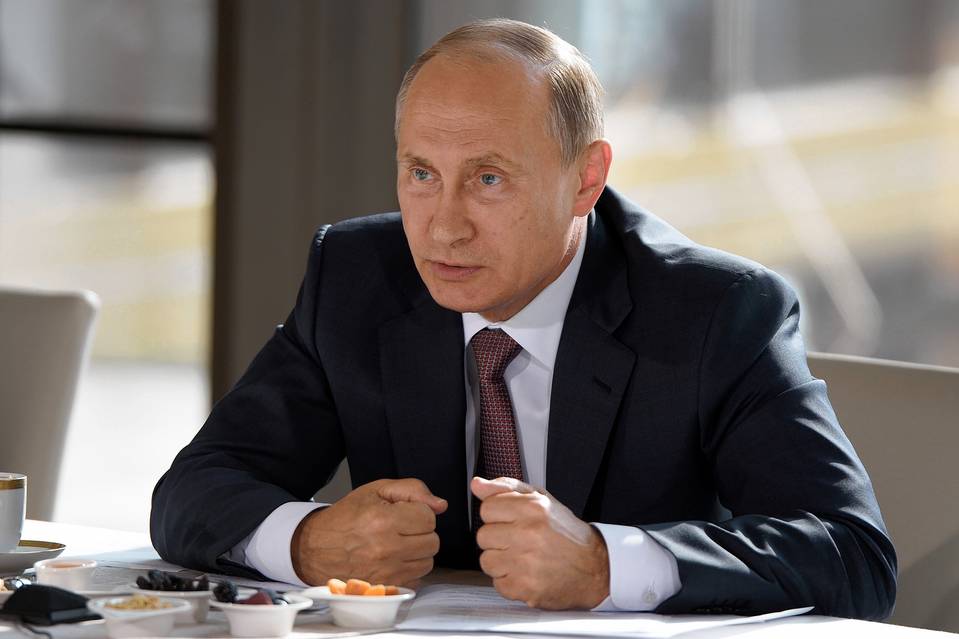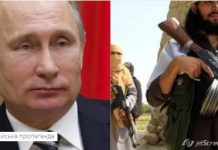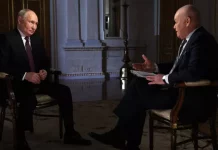
‘Where is Garry Kasparov?” asked many Russians recently, when they discovered that the famed chess player was missing from the new edition of a book celebrating the achievements of Russia’s largest athletic association, Spartak—of which Mr. Kasparov was a member. It turns out that an article about Mr. Kasparov had been removed at the last minute. The message was clear: No achievement can trump political loyalty, and for Mr. Kasparov, a harsh critic of the Kremlin, the doors to the Russian version of the sports hall of fame are currently closed.
Erasing dissidents from history was a standard practice of Soviet disinformation. I recall how one day in the mid-1970s at my university library in Elista, a small city between the Black and Caspian seas, I could not locate a book by a well-known Soviet literary critic, Efim Etkind. When I asked the librarian, she looked at me as if evaluating whether my question was a provocation or simply a result of naiveté. Concluding the latter, she sternly replied that the book was no longer available because the author was a dissident and had emigrated to Israel. The book’s title was “A Conversation About Poetry,” and it had nothing to do with politics.
I thought of this last week when the zealous authorities in Sverdlovsk Oblast ordered the books of two British military historians, Antony Beevor and John Keegan, taken from library shelves. These classic books about the battles of Stalingrad and Berlin reveal the Soviet generals’ disregard for casualties and soldiers’ mass rape of German women in 1945, taboo topics seen as undermining Russia’s glorious victory. The authorities insisted that the books present “a mistaken representation” of World War II and “Nazi propaganda stereotypes.”
The short-lived outburst of freedom after the collapse of the U.S.S.R. in 1991 was followed by a slow return to Soviet values. After assuming the presidency again in May 2012, Mr. Putin appointed as minister of culture Vladimir Medinsky, a man widely considered to be a crude propagandist and henchman. The appointment came as a shock to the Russian intelligentsia and marked a new aggressiveness by Mr. Putin toward reshaping the cultural and ideological landscape. Mr. Medinsky has regularly denounced regime critics as Russophobes, Russian liberals as national traitors, gays as products of Western decadence, and modern artists and writers as blasphemous.
Opinion Journal Video
Mr. Medinsky has suggested that there was no anti-Semitism in the Russian empire, that the reign of Ivan the Terrible was not so terrible after all, and that Stalin’s purges were necessary. When accused of falsifying history, Mr. Medinsky responded that history is solely a matter of interpretation and mass propaganda.
Last month he defended a popular legend of 28 soldiers of the Panfilov division who lost their lives bravely defending Moscow from the Nazis in November 1941. Even in the face of the fact that some of these men proved to be alive after the war and the story was shown to have been concocted by the editor of the Red Star newspaper, Mr. Medinsky dismissed the critics of this tale of Soviet heroism. “The only thing I can say to them is: It would be good if we had a time machine and could send you, poking your dirty, greasy fingers into the history of 1941, into a trench armed with just a grenade against a fascist tank,” he said.
In early 2013, Mr. Putin proposed the introduction of a single history textbook for all Russian middle schoolers, and Mr. Medinsky promoted the idea. “One should not create pluralism in school children’s heads,” he was quoted as saying, as he expressed support for a single textbook with a clearly defined pantheon of Russian heroes to serve as models of the country’s greatness. In the end the government decided against a single version of the textbook, probably realizing that what could rouse patriotism in central Russia might do the opposite in Chechnya or other regions. Nonetheless, a basic textbook that follows an approved government blueprint is supposed to be out this fall.
This rewriting of history sometimes puts the government at odds with the Orthodox Church. Mr. Putin has burnished Stalin’s image, presenting him as a shrewd leader faced with hard choices—much the same way Stalin once ordered Sergei Eisenstein to make a film about Ivan the Terrible, with whom Stalin identified. Yet this rehabilitation of Stalin does not sit well with the church, which was destroyed during Stalin’s rule but now is one of Mr. Putin’s most reliable supporters.
More surprising was Mr. Putin’s claim that Crimea is an ancient and sacred Russian land, where Grand Prince Vladimir was baptized in 988 and from which he brought Christianity to Russia. Yet neither Russia nor Moscow existed in the 10th century, and Prince Vladimir ruled in Kiev, now the capital of Ukraine. Even at the height of Russian nationalism in the 19th century, emperors never disputed the link between Prince Vladimir and Kiev, where the imperial authorities constructed St. Vladimir University, St. Vladimir Cathedral and St. Vladimir Monument, depicting the prince, cross in hand, looking over the Dnieper River.
Now Mr. Putin wants to claim Prince Vladimir for his own. An 80-foot monument of the saint will be erected on a hill in Moscow this fall. The goal, of course, is to legitimize Mr. Putin’s annexation of Crimea and delegitimize the sovereignty of Ukraine.
To impose the state’s version of history, Russia’s government is using both carrots and sticks. Those who do not toe the line are denied government grants and have difficulty finding publishers for their books or venues for their performances. Critics who are particularly vocal are hounded out: The departures of two prominent economists, Sergei Guriev to France and Konstantin Sonin to the U.S., and the firing of history professor Andrey Zubov from the Moscow Institute of International Relations drew headlines. Yet few noticed when the historian Vladimir Khamutayev was forced to flee the country after arguing that his native region of Buryatia, which borders Mongolia, was “Russia’s silent colony.”
That Russia should be taking such steps now is particularly striking. In the past three years, the Dutch government apologized for the mass killings in Indonesia in the 1940s, the British for the colonial abuse in Kenya in the 1950s, the French for the injustice in Algeria in the 1950s-60s, and the Japanese for their actions during World War II.
But Russia marches backward to its own drummer. One can only hope that some day a different set of Russian leaders will realize that history is not simply fodder for mass propaganda, to be rewritten and disseminated by the state.
Mr. Khodarkovsky grew up in the Soviet Union and is a history professor at Loyola University in Chicago.
By Michael Khodarkovsky, The Wall Street Journal





